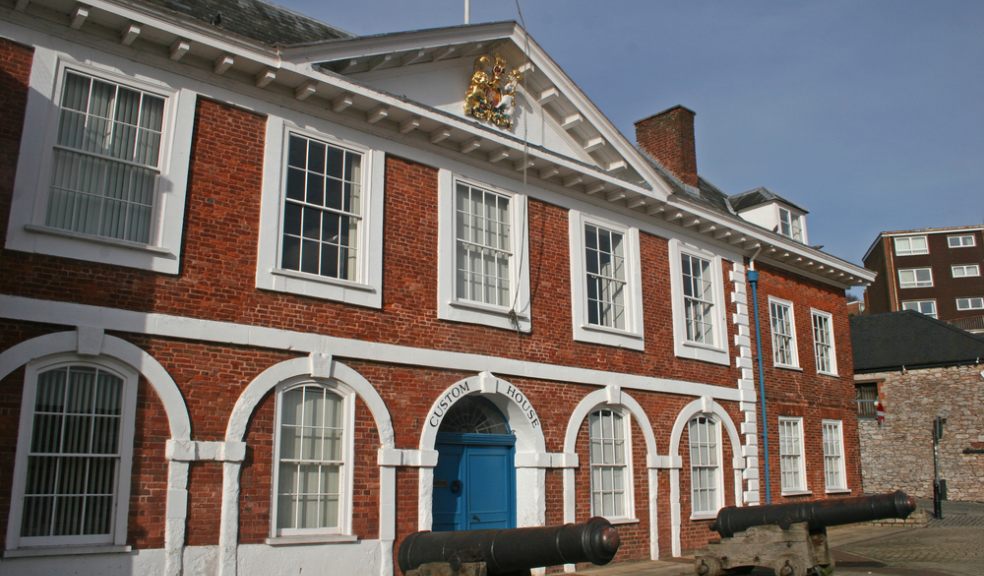
Stimulate local economies by unlocking unused heritage
Today, as the first comprehensive analysis of how the UK’s historic buildings are used by businesses is published, the Heritage Lottery Fund (HLF) has launched Heritage Enterprise, a pioneering new funding programme designed to stimulate local economic growth by unlocking the commercial potential of unused historic buildings and sites.
With a commitment of at least £25 million per annum over the next five years, HLF’s new scheme will empower not-for-profit organisations, such as community groups and social enterprises to work in partnership with the private sector to rescue and return neglected historic buildings to productive use. Today’s research shows that historic buildings are particularly successful in attracting creative industries and new business start-ups, which are particularly productive in terms of contribution to GDP. Heritage Enterprise will help tap into this potential for commercial enterprise, boosting local economies, jobs and skills.
Heritage Enterprise is designed to address 'market failure' – where historic buildings have failed to attract investment to realise their potential business premium because their cost of repair has meant that it is not commercially viable for private developers to take on. Grants of between £100,000 and £5 million will plug the gap between the costs of repair and the value of the property after restoration.
In addition, projects can apply to the HLF for a limited amount of funding that will support capital works whilst a project is being planned. It could support urgent repair works to prevent a building’s further deterioration ('stabilisation works') or could include the building of new temporary structures designed to allow 'meanwhile uses', so that vacant sites can be brought back into use at the earliest opportunity ahead of full restoration.
New research
Heritage Enterprise is being launched in conjunction with the publication of the first ever comprehensive analysis of how businesses across the UK use historic buildings. Based on research commissioned by HLF and English Heritage working with Oxford Economics and Colliers International, New ideas need old buildings has revealed the positive impact historic buildings have on the UK’s economy and their proven ability to contribute to growth.
The research shows that historic buildings and historic quarters of our major towns and cities are the very places where new ideas and new growth are most likely to happen. The key findings of the analysis demonstrate that in the places we surveyed, a commercial business based in a historic building generates more wealth than is the average for the UK economy as a whole, at £308,000 GVA per annum.
Key findings:
- Historic buildings in our major towns and cities have a high concentration of businesses linked to the creative and cultural sector and to the knowledge economy of professional services. These are the most productive sectors of the economy.
- In the places we surveyed in England creative businesses are found much more frequently than they are across the economy as a whole. Creative sector businesses are 28% more likely to be found in these listed buildings, when compared to their frequency across the national economy as a whole
- In the places we surveyed, a commercial business based in a historic building generates more wealth than is the average for all commercial businesses across the UK, at £308,000 GVA per annum.
- Listed buildings are highly attractive to creative industry start-ups. Over 60% of the creative and cultural businesses we surveyed had been established in the last three years.
- Listed buildings are far more likely to be occupied by the type of independent non-branded business that give places a sense of authenticity and diversity.
- Across the UK, the businesses based in listed buildings are highly productive and make an estimated annual contribution to UK GDP of £47 billion.
- Businesses based in listed buildings across the UK employ approximately 1.4m people
Welcoming the new programme, Ian Lush, Chairman of the Heritage Investment Working Group (HWIG) and Chief Executive of the Architectural Heritage Fund, said: "Heritage Enterprise is a really bold and welcome move by the Heritage Lottery Fund at exactly the right time. Finding new models for investing in heritage are vital to long term sustainability and we know from experience that investment from the private sector not only secures the future of these important buildings but also has a very positive impact on local economies."
Dame Jenny Abramsky, Chair of HLF, said: "This research is incredibly revealing. The important role heritage plays in creating a strong sense of identity and place is well known; however, these new findings demonstrate the role heritage buildings play in economic development. Of course, we understand that historic buildings are not without their challenges. With Heritage Enterprise, the Heritage Lottery Fund is addressing the factors that have in the past limited investment from private business."
Additional help for organisations – start up grants
To help local communities begin a Heritage Enterprise project and organise themselves to take on a heritage building with a constitution which will be eligible for funding, HLF is also offering start-up grants between £3,000 and £10,000. These grants will enable groups to create the organisational structures needed to deliver projects and to help with the associated costs, such as obtaining professional and legal advice.
The deadlines to apply for a Heritage Enterprise grant will begin May 2013, with first decisions in autumn 2013. Twitter: #heritageenterprise




















